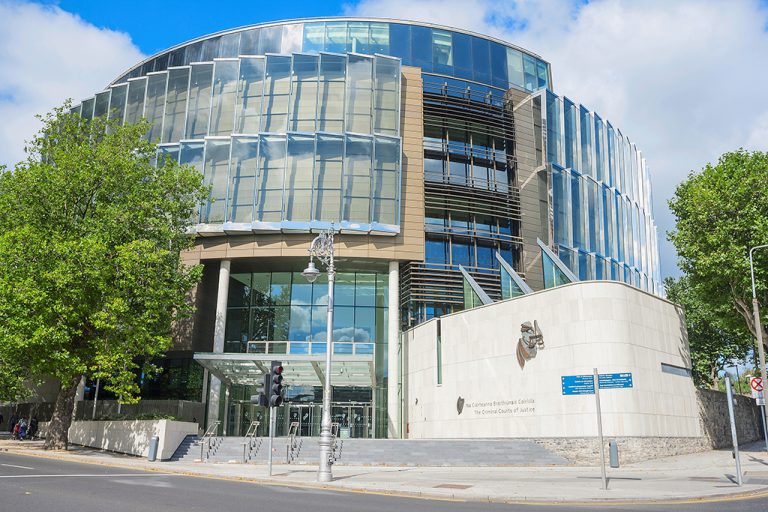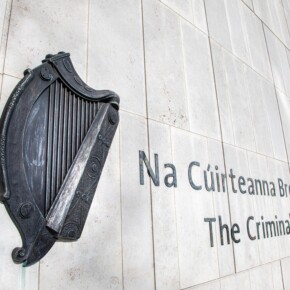Man jailed for three separate offences of possession child sexual abuse material
Dublin People 16 May 2024
By Jessica Magee
An IT worker who has been jailed for three separate offences of possessing child sexual abuse material told gardaí that he didn’t know how the material ended up on his digital devices.
Gardaí first searched the family home of Oisín Cannon (33) at Orlagh Meadows, Knocklyon in 2017, where they found a mobile phone, tablet and laptop containing over 1,000 images of child sexual abuse material (CSAM).
Cannon refused to accept responsibility for any CSAM and took a trial date but gardaí again searched his home in May 2019 and September 2020, when further offending files were found on some of his devices.
At a sitting of Dublin Circuit Criminal Court yesterday, the court heard that Cannon told gardaí he had “no interest” in child pornography.
Cannon said he had been browsing online one day when 20 or so pop-up windows containing CSAM were displayed to him, but that he had closed them and hadn’t saved any.
He also suggested variously that other members of his household may have had access to the material, or that it could have been caused by viruses, or that some apps used to download illicit material may have been installed remotely by third parties.
“I’m sick to my stomach but what else do you want me to do. I’ll look into it and see if I can figure it out,” Cannon told gardaí.
He denied having at any stage accessed or stored explicit material or having used search terms such as “underage erotic” to trawl the dark web and said if he had been aware of any such material, he would have reported it to gardaí.
Cannon was due to face trial in 2025 but he pleaded guilty earlier this year to possession of child pornography on all three bills.
Judge Martin Nolan handed him a global sentence of three years and nine months, expressing the hope that Cannon might learn from his experience.
Judge Nolan said it was an “open question” as to whether Cannon might reoffend, adding that it was concerning that he had reoffended a number of times.
“I consider his behaviour to be very serious. He repeated it and that demonstrates something. It’s hard to know why he did it,” said the judge, adding that obviously accessing CSAM was not a “victimless crime”.
Judge Nolan said Cannon had a strong work record and came from a very good and decent family.
Detective Sergeant Kevin Drennan told John Berry BL, prosecuting, that the first search of Cannon’s home took place on August 5, 2017, on foot of confidential information given to gardaí.
Cannon’s HP laptop was seized and upon analysis, found to contain 1,011 unique images of CSAM, of which 860 were listed as being Category 1, the more serious sexually explicit material.
The laptop also contained 102 videos with a total running time of over 31 hours.
65 of the videos were listed as Category 1.
The majority of the videos featured children clearly younger than 12 years old, while some of them featured children as young as two or three.
Cannon’s mobile phone was found to contain 22 images, with a mix of Category 1 and 2, while his tablet contained eight images, again of mixed category.
Gardaí also discovered that Cannon had used software known as a TOR browser, which allows for internet searching without a record being kept of IP addresses.
A number of bookmarks were found on Cannon’s laptop with certain extensions indicating dark web and child abuse material, and one of the bookmarks had the name “underage erotic”, the court heard.
Garda technical experts also reviewed Cannon’s search history and found he had conducted 66 highly technical searches, directed at finding specific files.
Cannon accepted ownership of the devices and gave gardaí his passcodes, but denied having deliberately viewed or stored CSAM.
He told gardaí he worked in IT support and described himself as “computer literate”.
On foot of further information, gardaí again searched Cannon’s home on May 17, 2019, seizing several of his devices including an iPad.
On inspection, this iPad was found to contain 349 images, 34 videos and 118 screenshots of child sexual abuse, a mix of categories 1 and 2.
Cannon was arrested by appointment and told gardaí he had won the iPad in a raffle and only used it intermittently to look at YouTube videos.
He said he couldn’t remember having installed a number of apps which showed he had used the iPad far more frequently than he claimed, and said again that other people could have accessed the device.
The court heard that Cannon was on bail for some of these offences when his phone was seized again on September 16, 2020.
The phone was forensically analysed which uncovered 61 more serious Category 1 images of child pornography and 49 Category 2 images.
Detective Garda Anthony O’Kane told the court that 23 videos of mixed category were also found.
The court heard that the offending material was found in Cannon’s phone’s gallery, a user accessible location.
A dedicated cyber crime branch of the gardaí then performed a more detailed search and found an encrypted and obscured location, which contained 619 unique images listed as Category 1 and 4,933 of Category 2.
23 Category 1 videos were also revealed and some Category 2, with a total running time of 1hr 23 minutes.
Again Cannon refused to accept responsibility for the material and suggested it may have been a virus or that it could have been sent to him accidentally.
Cannon has no previous convictions.
Gardaí agreed with James Dwyer SC, defending, that Cannon had cooperated with gardaí at all times, answering all questions put to him and attending interview and arrest by arrangement.
Mr Dwyer said his client had a difficult childhood, particularly during his primary school years when he had been lonely, had experienced bullying and had undiagnosed dyslexia.
He was close to his grandparents in Kilkenny and had a keen interest in hurling, the court heard.
Cannon came from a close, loving family and his father and wife were present in court.
His best friend died from leukaemia in his teens which affected him greatly, the court heard.
A psychological report handed into court said Cannon had had a normal sexual development although with a significant interest in conventional pornography.
The report said Cannon suffered from a depressive disorder and was plagued by a lack of self-esteem.
He expressed remorse and said that at the time of the offences he had been under financial pressure and embarked on a “deep dive into the dark web” which gave him a sense of thrill and excitement which became normalised.
Cannon was described as a vulnerable man who was nonetheless at low risk of reoffending due to his stable, supportive family and the therapeutic steps he has taken to address his offending.
Letters were submitted from his parents and brothers, describing Cannon as “the glue that holds the family together”











